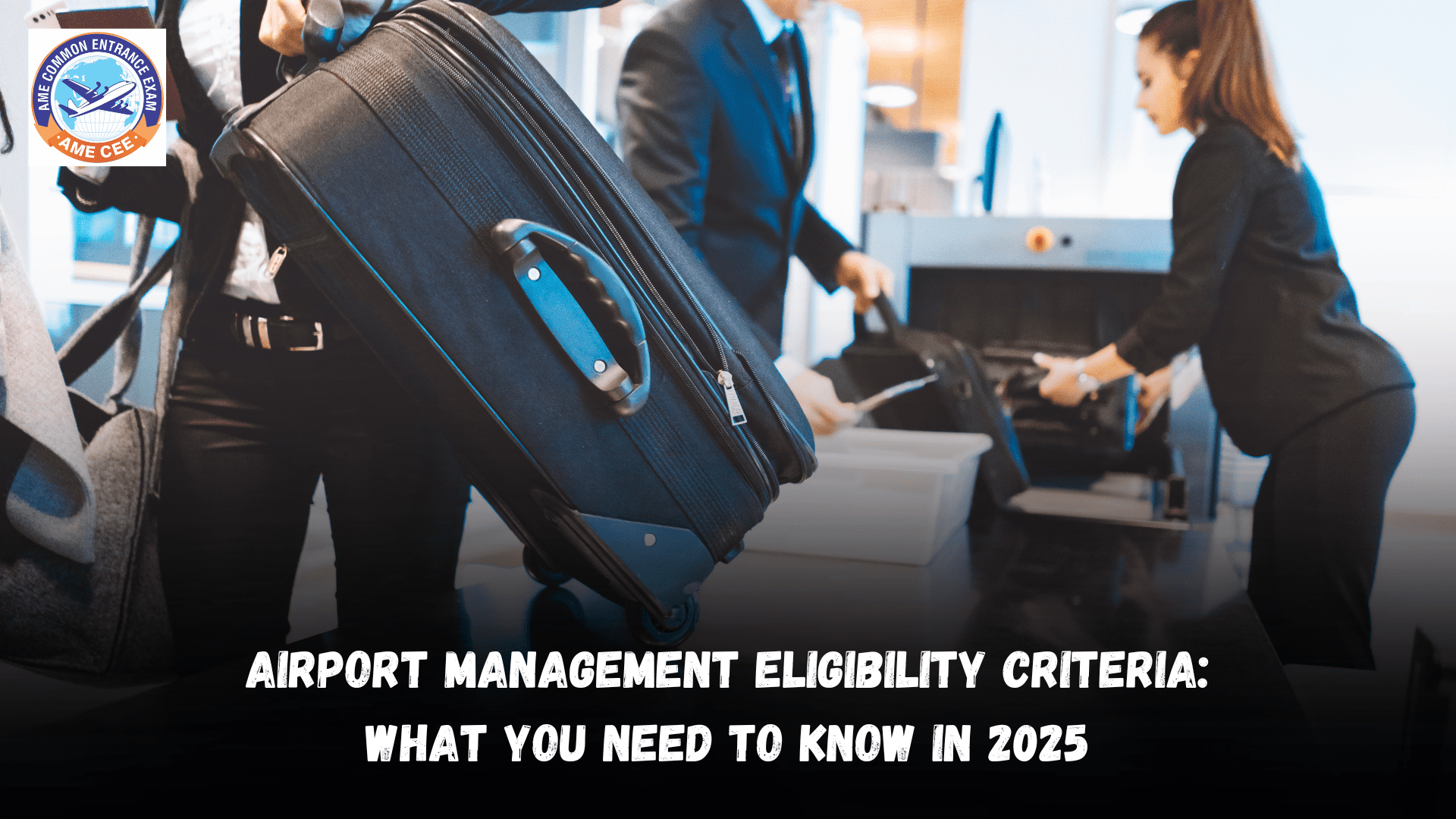Airport management is a dynamic and rewarding field that involves overseeing the operations, security, customer service, and overall functioning of airports. As the aviation industry continues to grow, the demand for skilled professionals in airport management is increasing. If you aspire to pursue a career in this sector, it’s important to understand the airport management eligibility criteria. This guide outlines the key qualifications and skills needed to start your career in airport management in 2025.
What is Airport Management?
Airport management involves the coordination and supervision of airport operations, including airside and landside activities, ensuring the safety and efficiency of airport facilities, handling passengers, managing staff, and ensuring compliance with aviation regulations. Airport managers play a critical role in maintaining smooth operations, addressing emergencies, and improving customer experiences.
Airport Management Eligibility Criteria: Key Requirements
While specific eligibility criteria may vary depending on the institution or employer, there are several common requirements that aspiring airport managers must meet. Below are the key qualifications and prerequisites:
1. Educational Qualifications
One of the fundamental requirements to enter the field of airport management is the completion of minimum educational qualifications. Most employers and institutions require candidates to have:
- Bachelor’s Degree: A degree in airport management, aviation management, business administration, or a related field is typically required.
- Master’s Degree (Optional but Advantageous): A Master’s in Business Administration (MBA) or a specialized degree in aviation management can provide a competitive edge and increase job prospects in higher managerial roles.
2. Experience in Aviation or Related Fields
Experience in aviation or a related field such as logistics, transportation, or hospitality is highly valued. Many airport management roles require candidates to have previous work experience in operations, customer service, or administration within the aviation industry. Entry-level positions in airlines, airports, or ground services can provide a solid foundation for advancing to higher managerial roles.
3. Leadership and Management Skills
As an airport manager, you’ll be responsible for overseeing teams, managing complex projects, and ensuring operational efficiency. Therefore, strong leadership and management skills are essential. Candidates should be able to demonstrate their ability to manage people, handle crisis situations, and make informed decisions under pressure.
4. Knowledge of Aviation Regulations and Safety Standards
Understanding aviation laws, security protocols, safety regulations, and international standards is critical. Airport management professionals must be familiar with industry regulations such as ICAO (International Civil Aviation Organization) standards, IATA (International Air Transport Association) rules, and local aviation laws to ensure compliance and passenger safety.
5. Communication and Interpersonal Skills
Strong communication and interpersonal skills are vital for airport management professionals. Airport managers interact with a variety of stakeholders, including passengers, airline staff, regulatory authorities, and vendors. Excellent verbal and written communication abilities are required to coordinate with different teams and resolve issues promptly.
6. Age and Nationality Requirements
Although age is typically not a strict requirement, candidates are generally expected to be at least 21 years old to apply for management-level positions. Some airport authorities may have specific nationality requirements depending on their location or operational needs, especially for high-security roles.
7. Technical Skills and Computer Literacy
In today’s technologically driven environment, airport managers need to have proficiency in various software applications used in airport operations. This may include tools for scheduling, tracking, and managing logistics. Familiarity with systems like Airport Management Software, CRM software, and data analytics can be an added advantage.
8. Certifications (Optional but Beneficial)
While not always mandatory, certain certifications can enhance your profile and make you more attractive to employers in airport management. Some of the notable certifications include:
- Certified Airport Manager (CAM) – offered by the American Association of Airport Executives (AAAE)
- IATA Certifications in aviation management
- Project Management Professional (PMP) certification for those aspiring to manage large airport development projects
Preferred Qualifications for Airport Management Professionals
In addition to the basic eligibility criteria, having the following qualifications can give you an edge in the competitive field of airport management:
- Internships and On-the-Job Training: Internships at airports, airlines, or related organizations provide invaluable real-world experience.
- Fluency in Multiple Languages: Airports are international hubs, and multilingual skills can be especially beneficial for managing passengers from diverse backgrounds.
- Problem-Solving and Analytical Abilities: The ability to think critically and solve problems efficiently is essential, especially when managing operations or dealing with emergencies.
How to Pursue a Career in Airport Management
If you’re ready to embark on a career in airport management, here are the steps you can take:
- Obtain the Necessary Education: Enroll in a degree program in airport management, aviation, or a related field. Consider further studies or certifications to enhance your qualifications.
- Gain Relevant Experience: Start in entry-level positions at airports or airlines to understand the operational aspects of the aviation industry. Look for internships or traineeships in airport management to build practical knowledge.
- Build Your Professional Network: Attend industry conferences, seminars, and career fairs. Connect with professionals in the aviation sector to learn about job openings and career advancement opportunities.
- Apply for Airport Management Positions: Look for job openings at airports, aviation consultancy firms, and airlines. Tailor your resume to highlight relevant experience, skills, and qualifications.
Conclusion: Start Your Journey in Airport Management
The field of airport management offers exciting opportunities for those passionate about aviation, operations, and customer service. By meeting the airport management eligibility criteria, gaining relevant experience, and continually upgrading your skills, you can open doors to a successful and fulfilling career in this ever-evolving industry. Whether you’re overseeing day-to-day operations or contributing to the strategic growth of an airport, a career in airport management provides endless possibilities for growth and advancement.


